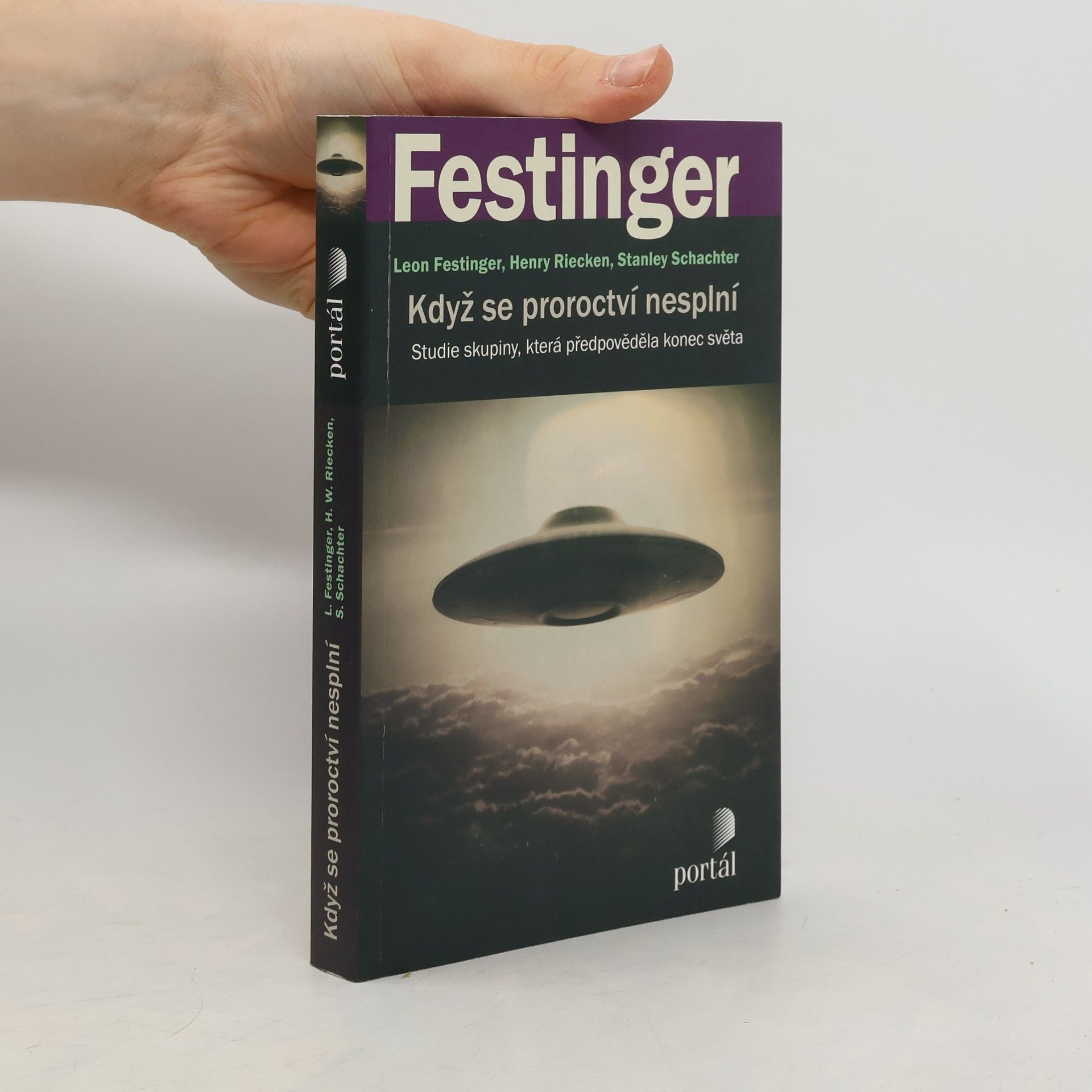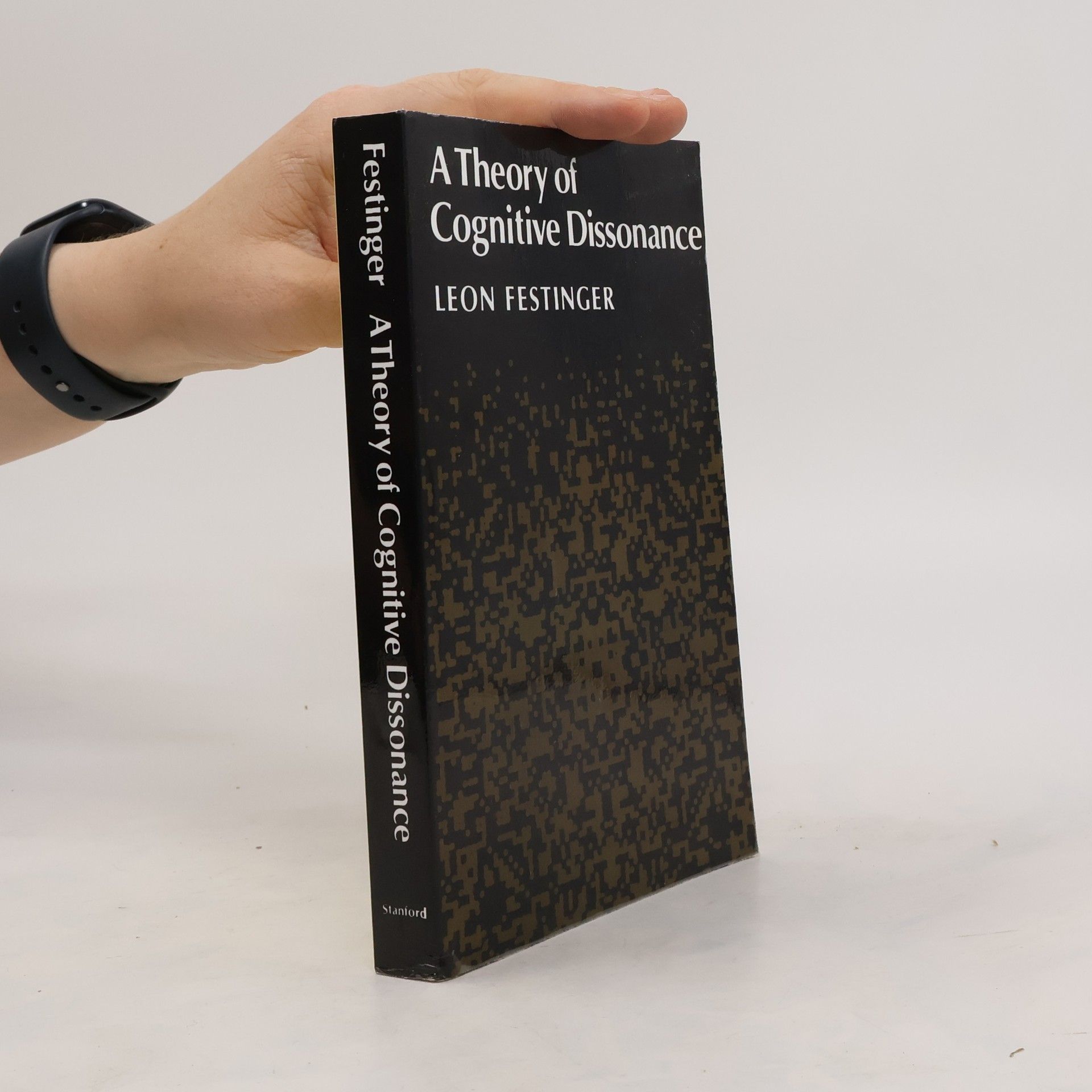Originally published: Evanston, Ill.: Row, Peterson, c1957.
Leon Festinger Livres
Leon Festinger, un psychologue passionné de science dès son plus jeune âge, est célèbre pour sa théorie de la dissonance cognitive. Il a exploré comment les individus recherchent la cohérence interne et la tension psychologique qui naît lorsqu'ils sont contraints d'agir ou de penser à l'encontre de leurs croyances. Son travail éclaire les manières dont les gens tentent de réconcilier ces conflits, révélant une influence majeure sur le comportement humain. Cette théorie est devenue une pierre angulaire pour de nombreuses recherches ultérieures en psychologie.




V knize z roku 1956 byla poprvé formulována slavná teorie kognitivní disonance (stav mysli vzniklý rozporem mezi dvěma poznáními či postoji). Vědci se infiltrovali do skupiny, která věřila v nadcházející apokalypsu a svou záchranu prostřednictvím UFO. Když ke konci světa nedošlo, skupina si to vysvětlila tím, že právě díky jejímu působení se bůh země rozhodl naši planetu zachránit. Festinger dochází k závěru, že aby člověk začal ještě silněji věřit nějaké teorii i poté, co se nesplnilo jeho očekávání, musí být splněno několik podmínek – například v minulosti musel své víře hodně obětovat a musí mít silnou sociální podporu. Tím dochází k odstranění kognitivní disonance (vnitřního rozporu), takže jakýkoli důkaz svědčící proti zastávané teorii je vysvětlen tak, aby teorii nevadil, nebo ji dokonce podpořil. Kromě své vědecké hodnoty je kniha, kterou lze číst jako román, zajímavým příběhem malé skupiny lidí, jež spojovalo bizarní, ale fascinující přesvědčení.